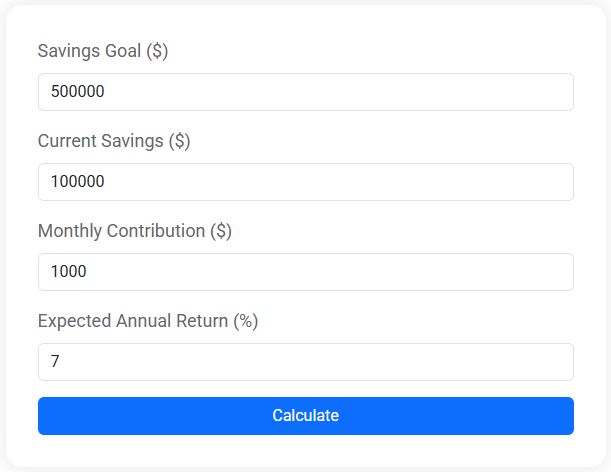Budget-Friendly Travel Tips for Saving Money on Your Next Vacation

Traveling can be affordable with careful planning and smart strategies, such as booking in advance, being flexible with dates, and choosing budget-friendly accommodations like hostels or vacation rentals. Opt for public transportation, enjoy local food, and seek out free activities to further save money. By being resourceful and open to new experiences, you can enjoy a memorable vacation without overspending.
Traveling the world, or even just exploring a new city, is an enriching experience that doesn’t have to break the bank. With a little foresight and creativity, you can make your travel dreams a reality without draining your savings account. From booking flights to finding accommodations, there are countless ways to cut costs while still enjoying an unforgettable adventure. Let’s dive into some tried-and-true strategies for traveling affordably, leaving you with more money to spend on what truly matters: making memories.
Plan Ahead and Be Flexible
One of the golden rules of budget travel is to plan ahead. Booking flights and accommodations early can often lead to significant savings. According to a study by CheapAir.com, the best time to buy domestic flights is typically about 76 days before departure. Of course, these numbers can vary depending on the destination and time of year, but the general rule remains: the earlier, the better.
Flexibility is another key factor. If your schedule allows, consider traveling during the off-peak season. Not only will you likely find cheaper flights and accommodations, but you’ll also enjoy a less crowded experience at popular tourist spots. Additionally, being flexible with your travel dates can open up cheaper options. Use tools like Google Flights or Skyscanner to explore the cheapest days to fly, and set fare alerts to catch price drops.
Choose Budget-Friendly Accommodations
When it comes to accommodations, thinking beyond traditional hotels can lead to substantial savings. Hostels are a fantastic option, especially for solo travelers or those who don’t mind sharing space. They offer the chance to meet fellow travelers, which can enrich your experience and sometimes lead to shared costs for things like meals or tours.
Another great choice is vacation rentals, like those found on Airbnb or Vrbo. These often come with kitchen facilities, allowing you to save money by preparing some of your meals at home. Being able to whip up a quick breakfast or pack a picnic lunch can significantly cut down on dining expenses. Plus, staying in a residential neighborhood can provide a more authentic experience of the local culture.
Savings Goal Calculator
Use our free Savings Goal Calculator to find out how long it will take to reach your savings target. See your timeline and how interest can help you grow faster.
Embrace Public Transportation
Getting around a new place can be one of the largest expenses on a trip, but it doesn’t have to be. Embracing public transportation not only saves money but also immerses you in the local way of life. Buses, trains, and trams are often cheaper than taxis or rideshares, and they can offer a scenic view of the city.
In many cities, you can purchase day passes or multi-day passes that provide unlimited travel at a reduced rate. For instance, in cities like Paris, the Paris Visite pass offers unlimited public transport in the city over several days. In addition, walking or renting a bike can be both economical and healthy ways to explore.
Savor Local Cuisine
Food is undoubtedly one of the delights of traveling, and it’s possible to indulge without overspending. Skip the tourist traps and head to where the locals eat. Street food and local markets are treasures troves of affordable and delicious meals. In Bangkok, for example, you can feast on pad thai or mango sticky rice for just a few dollars.
Another tip is to dine during lunch rather than dinner when many restaurants offer cheaper lunch menus. If you’re staying in a place with kitchen facilities, consider picking up fresh ingredients from local markets to cook your own meals. Not only will this save money, but it can also be a fun way to experiment with local flavors.
Seek Out Free and Low-Cost Activities
Every destination has its own set of free or low-cost attractions. Whether it’s exploring public parks, attending free museum days, or joining a walking tour, there are plenty of ways to enjoy your trip without spending a fortune. Websites like Meetup can connect you with free events and activities happening in the area.
Additionally, take advantage of the natural attractions your destination has to offer. Hiking, swimming, or simply wandering around a new neighborhood can provide hours of entertainment at no cost. Many cities also have free festivals, concerts, or cultural events that offer a glimpse into the local lifestyle.
Be Resourceful and Open-Minded
Ultimately, a successful budget-friendly vacation requires a resourceful mindset and a willingness to try new things. Consider alternative travel options such as carpooling or ride-sharing apps like BlaBlaCar, which can be cheaper than traditional transport and offer the added benefit of meeting locals.
Traveling on a budget doesn’t mean skimping on experiences; it means prioritizing what’s most important to you. Whether that’s a luxury meal, a guided tour, or a day at a renowned museum, the key is to balance splurges with savings elsewhere. By being strategic and open to new experiences, you can stretch your travel budget further than you might think.
In the end, the most memorable travel experiences often come from the unexpected moments and the people you meet along the way, not from the price tag of your hotel or the cost of a fancy dinner. So pack your bags, keep an open mind, and get ready for an adventure that won't empty your wallet.








